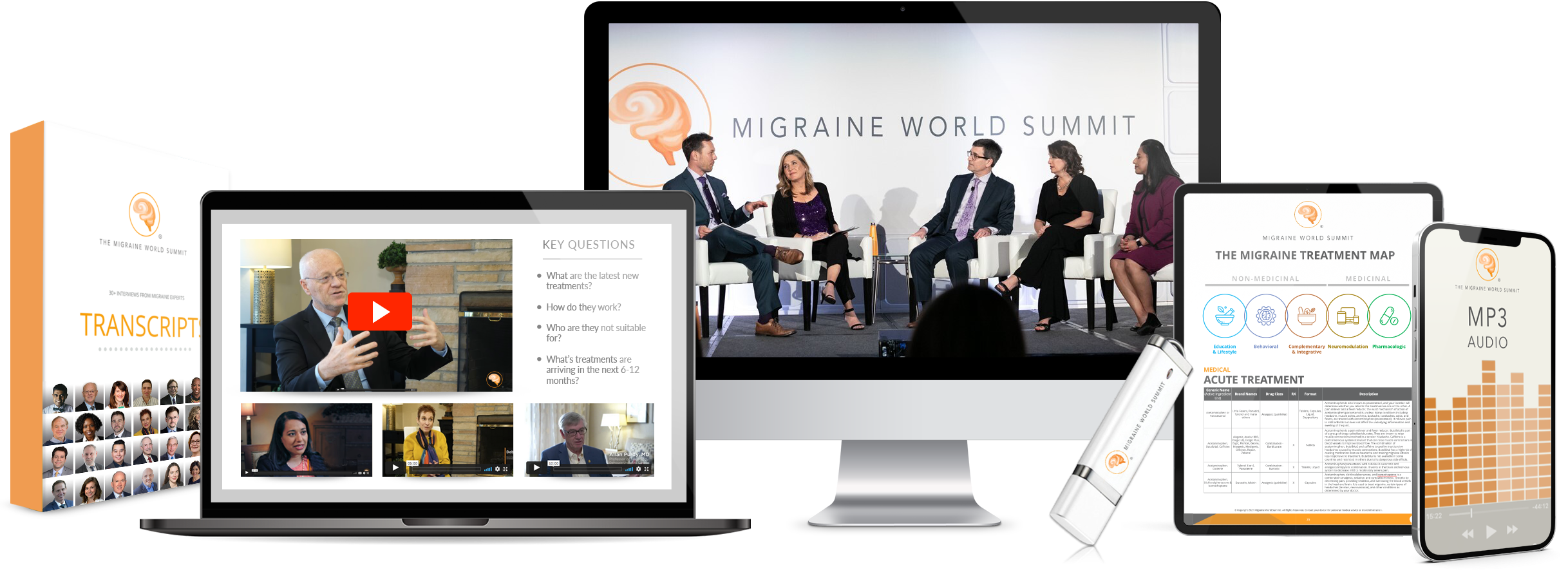How to Interpret Migraine Research
You are currently watching a preview of this interview. Unlock the full version by upgrading to an Access Pass bundle! Get FREE access to 8 expert interviews from Day 1 and Day 2 when you register today!
Key Questions
- What are the main types of research conducted in migraine research?
- What are the definitions of common terms used in research studies such as “research protocol”, “study design”, “double-blind”, “relative and absolute risk”, “odds ratio”, and “confidence interval”, etc.?
- What is peer review and why is it used so often in research?
- What can we do to understand and interpret some of the peer-reviewed research studies that we might find on Google Scholar or PubMed?
- Often in research studies on migraine, placebo can be as high as 30%. What does that mean?
- What is research bias, and how is it overcome in order to achieve accurate research study results?
- Why is it important to know the source of funding for a particular research study?
- What is the structure of a typical research paper?
- What are some red flags to watch out for when looking at a research paper that could indicate that it’s not a reliable study?
- Why aren’t there more studies about non-medicinal methods of managing migraine, like exercise, diet, supplements, and essential oils?

Anders Hougaard MD, PhD
Headache Specialist & Researcher
Danish Headache Center, Copenhagen University Hospital, Denmark
Anders Hougaard, MD, PhD, is a research fellow at the Danish Headache Center, Glostrup Hospital, Copenhagen, Denmark. He graduated from the University of Copenhagen in 2010, and is a member of the International Headache Society. Dr. Hougaard’s main research interests include pathophysiology of migraine with aura, human migraine models, neuroimaging and clinical trials of acute and preventive treatments of migraine. He has several publications on migraine in multiple peer-reviewed journals.

Get all the 2025 interviews, videos, audio, transcripts, and more. Why upgrade?
- Can’t attend live? Watch anytime
- Prefer reading or listening? Get transcripts and audio
- Want to dive deeper? Explore the additional footage & resources
- Need ongoing support? Reference expert advice year-round
- Lifetime access to 2025, no annual fee





